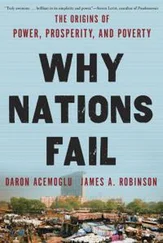Adam Smith - Wealth of Nations
Здесь есть возможность читать онлайн «Adam Smith - Wealth of Nations» — ознакомительный отрывок электронной книги совершенно бесплатно, а после прочтения отрывка купить полную версию. В некоторых случаях можно слушать аудио, скачать через торрент в формате fb2 и присутствует краткое содержание. Жанр: unrecognised, на английском языке. Описание произведения, (предисловие) а так же отзывы посетителей доступны на портале библиотеки ЛибКат.
- Название:Wealth of Nations
- Автор:
- Жанр:
- Год:неизвестен
- ISBN:нет данных
- Рейтинг книги:4 / 5. Голосов: 1
-
Избранное:Добавить в избранное
- Отзывы:
-
Ваша оценка:
- 80
- 1
- 2
- 3
- 4
- 5
Wealth of Nations: краткое содержание, описание и аннотация
Предлагаем к чтению аннотацию, описание, краткое содержание или предисловие (зависит от того, что написал сам автор книги «Wealth of Nations»). Если вы не нашли необходимую информацию о книге — напишите в комментариях, мы постараемся отыскать её.
Adam Smith's masterpiece, first published in 1776, is the foundation of modern economic thought and remains the single most important account of the rise of, and the principles behind, modern capitalism. Written in clear and incisive prose, The Wealth of Nations articulates the concepts indispensable to an understanding of contemporary society.
Wealth of Nations — читать онлайн ознакомительный отрывок
Ниже представлен текст книги, разбитый по страницам. Система сохранения места последней прочитанной страницы, позволяет с удобством читать онлайн бесплатно книгу «Wealth of Nations», без необходимости каждый раз заново искать на чём Вы остановились. Поставьте закладку, и сможете в любой момент перейти на страницу, на которой закончили чтение.
Интервал:
Закладка:
Every species of animals naturally multiplies in proportion to the means of their subsistence, and no species can ever multiply beyond it. But in civilised society it is only among the inferior ranks of people that the scantiness of subsistence can set limits to the further multiplication of the human species; and it can do so in no other way than by destroying a great part of the children which their fruitful marriages produce.
The liberal reward of labour, by enabling them to provide better for their children, and consequently to bring up a greater number, naturally tends to widen and extend those limits. It deserves to be remarked, too, that it necessarily does this as nearly as possible in the proportion which the demand for labour requires. If this demand is continually increasing, the reward of labour must necessarily encourage in such a manner the marriage and multiplication of labourers, as may enable them to supply that continually increasing demand by a continually increasing population. If the reward should at any time be less than what was requisite for this purpose, the deficiency of hands would soon raise it; and if it should at any time be more, their excessive multiplication would soon lower it to this necessary rate. The market would be so much understocked with labour in the one case, and so much overstocked in the other, as would soon force back its price to that proper rate which the circumstances of the society required. It is in this manner that the demand for men, like that for any other commodity, necessarily regulates the production of men; quickens it when it goes on too slowly, and stops it when it advances too fast. It is this demand which regulates and determines the state of propagation in all the different countries of the world, in North America, in Europe, and in China; which renders it rapidly progressive in the first, slow and gradual in the second, and altogether stationary in the last.
The wear and tear of a slave, it has been said, is at the expense of his master; but that of a free servant is at his own expense. The wear and tear of the latter, however, is, in reality, as much at the expense of his master as that of the former. The wages paid to journeymen and servants of every kind must be such as may enable them, one with another, to continue the race of journeymen and servants, according as the increasing, diminishing, or stationary demand of the society may happen to require. But though the wear and tear of a free servant be equally at the expense of his master, it generally costs him much less than that of a slave. The fund destined for replacing or repairing, if I may say so, the wear and tear of the slave, is commonly managed by a negligent master or careless overseer. That destined for performing the same office with regard to the free man, is managed by the free man himself. The disorders which generally prevail in the economy of the rich, naturally introduce themselves into the management of the former: the strict frugality and parsimonious attention of the poor as naturally establish themselves in that of the latter. Under such different management, the same purpose must require very different degrees of expense to execute it. It appears, accordingly, from the experience of all ages and nations, I believe, that the work done by freemen comes cheaper in the end than that performed by slaves. It is found to do so even at Boston, New York, and Philadelphia, where the wages of common labour are so very high.
The liberal reward of labour, therefore, as it is the effect of increasing wealth, so it is the cause of increasing population. To complain of it is to lament over the necessary effect and cause of the greatest public prosperity.
It deserves to be remarked, perhaps, that it is in the progressive state, while the society is advancing to the further acquisition, rather than when it has acquired its full complement of riches, that the condition of the labouring poor, of the great body of the people, seems to be the happiest and the most comfortable. It is hard in the stationary, and miserable in the declining state. The progressive state is in reality the cheerful and the hearty state to all the different orders of the society. The stationary is dull; the declining, melancholy.
The liberal reward of labour, as it encourages the propagation, so it increases the industry of the common people. The wages of labour are the encouragement of industry, which, like every other human quality, improves in proportion to the encouragement it receives. A plentiful subsistence increases the bodily strength of the labourer, and the comfortable hope of bettering his condition, and of ending his days perhaps in ease and plenty, animates him to exert that strength to the utmost. Where wages are high, accordingly, we shall always find the workmen more active, diligent, and expeditious than where they are low: in England, for example, than in Scotland; in the neighbourhood of great towns than in remote country places. Some workmen, indeed, when they can earn in four days what will maintain them through the week, will be idle the other three. This, however, is by no means the case with the greater part. Workmen, on the contrary, when they are liberally paid by the piece, are very apt to overwork themselves, and to ruin their health and constitution in a few years. A carpenter in London, and in some other places, is not supposed to last in his utmost vigour above eight years. Something of the same kind happens in many other trades, in which the workmen are paid by the piece, as they generally are in manufactures, and even in country labour, wherever wages are higher than ordinary. Almost every class of artificers is subject to some peculiar infirmity occasioned by excessive application to their peculiar species of work. Ramuzzini, an eminent Italian physician, has written a particular book concerning such diseases. We do not reckon our soldiers the most industrious set of people among us. Yet when soldiers have been employed in some particular sorts of work, and liberally paid by the piece, their officers have frequently been obliged to stipulate with the undertaker, that they should not be allowed to earn above a certain sum every day, according to the rate at which they were paid. Till this stipulation was made, mutual emulation and the desire of greater gain frequently prompted them to overwork themselves, and to hurt their health by excessive labour. Excessive application during four days of the week is frequently the real cause of the idleness of the other three, so much and so loudly complained of. Great labour, either of mind or body, continued for several days together, is in most men naturally followed by a great desire of relaxation, which, if not restrained by force or by some strong necessity, is almost irresistible. It is the call of nature, which requires to be relieved by some indulgence, sometimes of ease only, but sometimes, too, of dissipation and diversion. If it is not complied with, the consequences are often dangerous, and sometimes fatal, and such as almost always, sooner or later, brings on the peculiar infirmity of the trade. If masters would always listen to the dictates of reason and humanity, they have frequently occasion rather to moderate than to animate the application of many of their workmen. It will be found, I believe, in every sort of trade, that the man who works so moderately as to be able to work constantly not only preserves his health the longest, but, in the course of the year, executes the greatest quantity of work.
In cheap years, it is pretended, workmen are generally more idle, and in dear ones more industrious than ordinary. A plentiful subsistence, therefore, it has been concluded, relaxes, and a scanty one quickens their industry. That a little more plenty than ordinary may render some workmen idle, cannot well be doubted; but that it should have this effect upon the greater part, or that men in general should work better when they are ill fed than when they are well fed, when they are disheartened than when they are in good spirits, when they are frequently sick than when they are generally in good health, seems not very probable. Years of dearth, it is to be observed, are generally among the common people years of sickness and mortality, which cannot fail to diminish the produce of their industry.
Читать дальшеИнтервал:
Закладка:
Похожие книги на «Wealth of Nations»
Представляем Вашему вниманию похожие книги на «Wealth of Nations» списком для выбора. Мы отобрали схожую по названию и смыслу литературу в надежде предоставить читателям больше вариантов отыскать новые, интересные, ещё непрочитанные произведения.
Обсуждение, отзывы о книге «Wealth of Nations» и просто собственные мнения читателей. Оставьте ваши комментарии, напишите, что Вы думаете о произведении, его смысле или главных героях. Укажите что конкретно понравилось, а что нет, и почему Вы так считаете.












